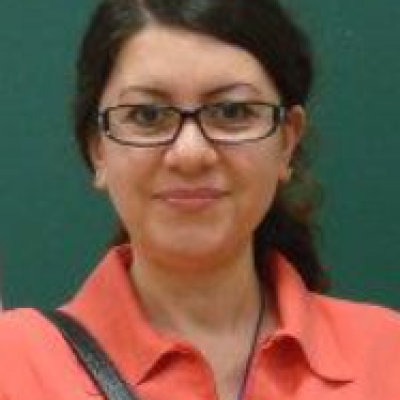Sessions / Long Session (45 minutes)
Forty-five-minute presentation
Introducing ICERC: A long-term research project based on a joint-university ER circle #3207
This presentation will introduce a long-term research project on extensive reading jointly run by three different universities in Japan. We organized a reading circle in 2021, which is formed of 40 students from four departments in three different universities who volunteered to join. The project will last until 2023 and during the three years, the participants are recommended to read as many books as possible using Xreading and attend periodical meetings and group activities that are intended to raise or maintain their motivation to read. It is an educational practice as well as a research project. As an educational practice, we are interested in how we can manage the learning community to make extensive reading successful. As a research project, we are interested in what kind of psychological transformation will occur over the long term. The presentation will focus on the project scheme and the outcomes of the first year.
Connecting digital and traditional learning environments with extensive reading #3200
Incorporating extensive reading into digital-forward education opens the doors to new forms of engagement for students. However, applying new technology can create a myriad of struggles for educators who may be less familiar with educational technology. Nevertheless, using reading series’ such as e-Future’s Classic Readers to engage students in a physical space while expanding extensive reading into digital spaces creates a well-rounded educational experience. Traditional educational tools and new technology can develop an attractive blend of digital and physical content that will afford educators the freedom to create a robust classroom experience while being ready for any possible problem that might arise.
Diagnosing gaps in foreign language reading: A framework and tools for it #3185
Research into extensive reading (ER) has provided evidence of gains in fluency, vocabulary development, and improved motivation. However, since reading literacy is such a complex phenomenon, what about the performance gaps for our learners that go unaddressed with basic ER principles? This presentation briefly covers a four-stage framework for diagnosing foreign language reading skills (Alderson et al., 2015) — observation, initial assessment, hypothesis testing, decision making and feedback. The session then highlights three fundamental underpinnings—the science of how we read, individual differences, and bottom-up reading processes. With a greater understanding of these three, teachers can identify learner strengths and weaknesses to better support them in their reading challenges and development. Online links and various diagnostic tools will be shared and trialed for practical, ‘learning by doing’ in experiential learning. Participants should take away a broader sense of issues their learners may face with reading and resources to implement following diagnoses.
Speak to an Author: Connecting Students and Authors #3233
When an author writes a book, they create a new and unique world. Readers can enter that world, but they don’t typically have the opportunity to interact with its creator. With the aim of increasing students’ motivation to read, a series of events called Talk to an Author was organized. In each event, a specially invited author gave a short presentation about a book they wrote, including their motivation for writing it. Students attending, who had previously read the book on the Xreading website, were then given the opportunity to share their feeling about the book and ask questions directly to the author. In this session, the presenters will discuss the first two Talk to an Author events, including their experience organizing the events, feedback from both the students and authors, and finally their plans for future events.
Extensive and speed reading give first time “readers” a new purpose in Palestine #3187
“Reading for fun” isn’t a common practice for high school graduates in Palestine, where interest in reading typically centers on high school exam results. How might ER improve students’ attitudes about reading and shape their identity as readers? Over one semester, to supplement intensive reading from an instructor, students at an intensive English program practiced in-class speed reading (Nation, 2020) and regular self-guided ER through the Oxford Bookworms series, as well as free digital ER resources (Newsela, Ello, and English Through Story). Results suggest that consistent ER routines may have changed students’ perceptions about reading, heightened their awareness of their own progress, and stronger self-identity as “readers.” This is remarkable given a setting where unpredictable interruptions are the norm. This session and discussion will give the results of a reading inventory survey, lessons learned, tips for implementing ER, and its proposed expansion beyond the setting. The audience will contribute valuable feedback!
How to engage & inspire students through context, scene setting & structure #3194
Geoff teaches English through the format of book clubs. How does he help to engage students in the choice of book? How does he help the setting, author and characters come alive? How can we create a programme structure that leads to inspired and motivated readers? Geoff will show how he provides an engaging and motivating start to a course by going outside the text to look at location and setting, the author’s background, and cultural or historical aspects to bring the text to life. He will show numerous practical examples of how he does this such as using Google Earth for location setting; using author interviews or movie clips; biographies, and of course the book itself. This session is aimed at teachers looking for ideas to ensure a motivating start to an extensive reading programme.
Recipe for a National Extensive Reading Program #3285
Permission to Record
The Avenue project has been working towards raising awareness of extensive reading as a means of supporting language learners in the settlement sector across Canada. As this venture is gaining momentum, we have identified essential characteristics of a large scale, cohesive extensive reading program. In this session we will share these attributes with examples from the Avenue project. We will also share an update of our progress towards building a national extensive reading system.
The impossible dream achieved: Introducing a coursebook for Extensive Reading #3268
Many language teachers implement Extensive Reading in their classes in the knowledge that it will benefit learners’ language development. However, it can be difficult to create entire courses around ER, and some institutions require a compulsory textbook for each course. This presentation describes the development (and completion) of a four-skills coursebook seamlessly integrating an ER program through Xreading.com. The book is designed with a task-based approach and features engaging and relevant topics for learners.
Stories with Local Content To Instill Cultural Awareness in Young Language Learners #3173
When young learners are finally able to read their own books in the target language learned, it definitely is not merely an instant process of alphabet recognition or spelling. Long before the day arrives, they should have been enduring a process which should be a complete discovery of meaning and cultural values in which they are brought upon. It is linear to Ki Hajar Dewantara—Indonesian’s Father of Education—strong belief that exposure to dolanan (game), tembang (song/chant), drama or play, dongeng (stories) with local and culturally rich content are ideal tools to facilitate young learners. This practice-based findings reveal cultural value awareness and immersion as learners are exposed to poster stories, puppet show stories, children pictorial books, and articles with local content. Several methods applied and discussed are: reading aloud, story telling, comparing and analyzing cultural values within stories and learners’ local culture, and also opinion giving.
The case for agenda-based literature circles in EFL contexts #3282
Second language Literature Circles (L2-LCs) are useful as a way to help students onboard to ER. However, in the post-pandemic era, traditional face-to-face classrooms are but one setting for managing second language (L2) extensive reading (ER). Due to the variety of new contexts, an agenda-based system is suggested as an alternative to role-based LCs. Agenda-based meetings are authentic, intuitive for inexperienced teachers, and logistically simple. Agenda-based worksheets simultaneously scaffold learners’ responses to a reading during the reading phase and provide a plan for sharing learners’ inner experience with ER for students and teachers alike. This presentation aims to elucidate relevant pedagogical stylistic features of L2-LCs and show how teachers can quickly and easily develop worksheets in the agenda-based format. The addition of a separate pre-discussion stage for learners to focus on language and facilitation skills makes L2-LCs more effective for supporting simultaneous orientation to ER and building self-efficacy for discussion.
English for Life: 21st Century Skills through reading #3226
Students will tell you that they don’t like reading, but this is simply not true. On social media and through instant messaging students are reading (and writing) all the time – more than any other generation before them. They do not think of this as reading. Moreover, they are following engaging narratives about people, and responding to what they read on various important cognitive, emotional and social levels. Our classroom practices must and can be adapted now to connect with this very positive reality. So, if we introduce reading which is easy, in contexts learners understand and enjoy, they will be more motivated and will develop essential 21st century life skills alongside natural, meaningful language development. This session looks at ways to implement this with young adults, encouraging them to see how reading leads defining and redefining our values by exploring the lives and cultures of others.
Graded Reader Writing Competition: Motivating Students to Write AND Read #3238
Permission to Record
Extensive reading and creative writing are two activities that can be both enjoyable and motivating for students. With the objective of combining the two activities, plus to add a competitive element, a graded reader writing competition was held among students at a junior/senior high school in Tokyo, Japan. In this semester-long project, students, under the guidance of their teacher, wrote and illustrated their own graded readers. Despite multiple challenges, the result was successful. Twelve student writers completed novels which were then made available on the Xreading website so they could be read and rated by hundreds of students around the world as well as a panel of volunteer judges. The presenter will discuss the process that was used, share some samples, and explain how the project will be expanded in the future.
Fanreading: Make ER a ritual like brushing teeth #3181
English should be learnt not only from the textbooks, but in the daily life. ER is a must for all people who want to learn the language. There are many obstacles to practicing ER in China although all people agree it is important. We are trying to help teachers and parents of young kids to overcome some problems by using the Fanreading platform and AI devices and make ER a ritual like brushing teeth. It is too difficult for kids to choose books by themselves when they have little knowledge of English and most parents also can't help. Fanreading provides an easy-to-use graded reader database to choose books by levels, series, and key words on Mobile and webpage. There is no school time for ER, while it is easy to lend books to kids to read at home, most parents are unable to help them. Fanreading allows teachers to record their lessons on the platform and push it to the kids automatically. Little kids don't have smartphones, and many parents also don't want their kids to use them in case kids are not learning on them. The Fanreading platform is connected to AI devices that are portable, and can be synchronized with a smartphone so kids can have their own English learning tool while parents can observe the students' activity.
Xreading News: graded news stories from around the world #3269
Xreading News is an exciting new feature recently piloted on Xreading. Each week there are 5 graded news articles. Stories are short and cover a wide range of topics, such as Science & Technology, Health, and World News. The team of story writers and the series editor will discuss various aspects and perspectives on the process of bringing news stories to Xreading. They will discuss sourcing and selecting stories, writing graded text, and simplifying complex issues. They will also talk about using the stories in the classroom.
























